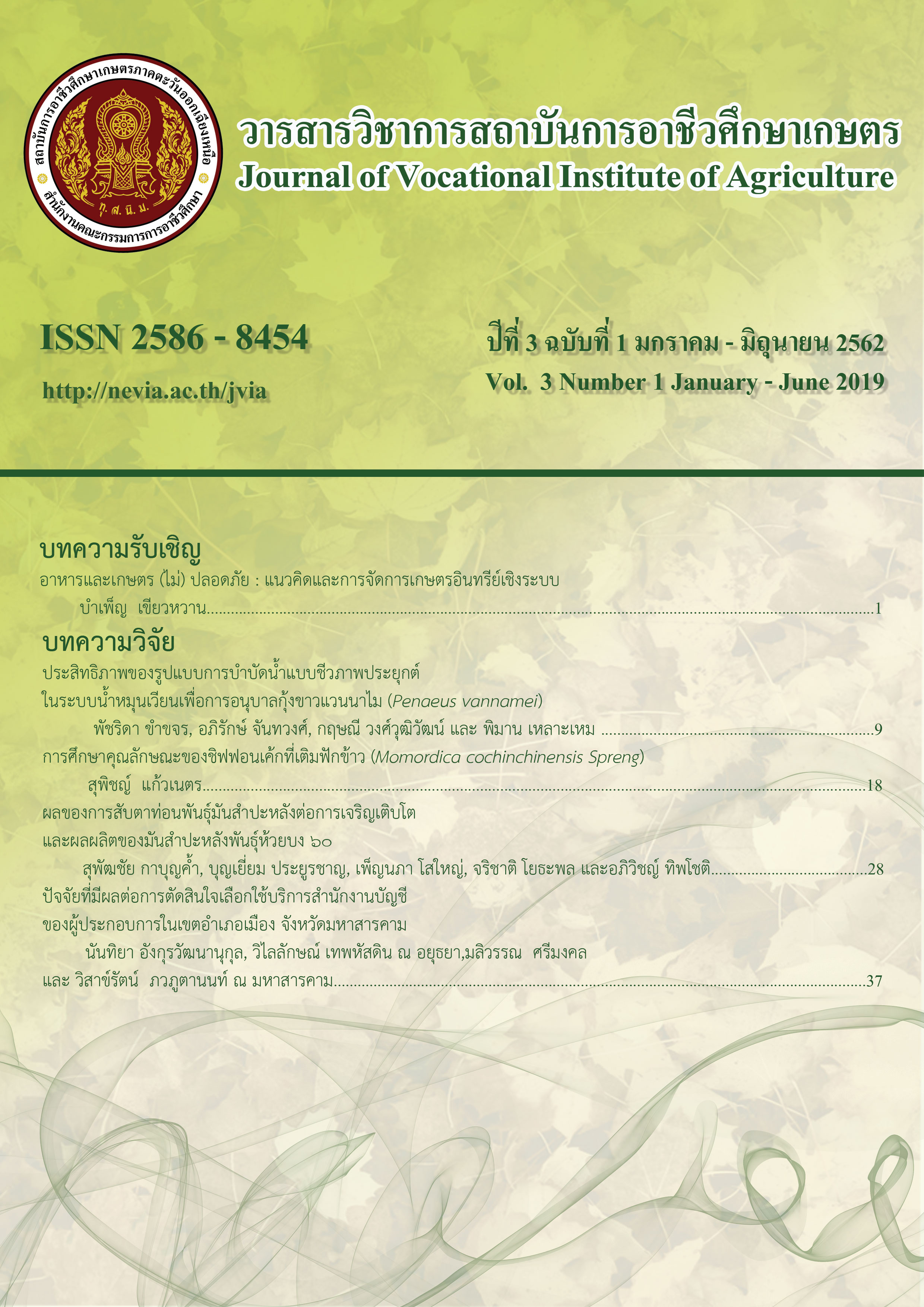Efficiency of Bio-filtration in Recirculating Nursery System for Pacific White Shrimp (Penaeus vannamei) Production
Main Article Content
Abstract
This study aimed to investigate the efficiency of a bio-filtration model in a
recirculating nursery system which was used in a Pacific White Shrimp (Penaeusvannamei)
nursing pond. Three parameters were examined which were water quality, growth rate
(increased length, weight) and average daily growth (ADG), and survival rate. There were two
treatments with three replications.Treatment 1 was shrimp nursing with bio-filtration in a
recirculating system andtreatment 2was regular water exchange. The shrimp (PL. 20) were
stocked in 3 square meter concrete ponds at a density of 312 pieces/square meter. The
experiment lasted for 30 days. The study results showed that the water quality namely
ammonia, nitrite, pH alkalinity, temperature and salinity were not significantly different
between treatments. They were allin optimum levels for nursing Pacific white shrimp.
Growth and survival of the shrimp were not significantly different between treatments
(P>0.05).
Article Details
The content and information in articles published in the Journal of Vocational Education in Agriculture are the opinions and responsibility of the article's author. The journal editors do not need to agree or share any responsibility.
Articles, information, content, etc. that are published in the Journal of Vocational Education in Agriculture are copyrighted by the Journal of Vocational Education in Agriculture. If any person or organization wishes to publish all or any part of it or to do anything. Only prior written permission from the Journal of Vocational Education in Agriculture is required.

